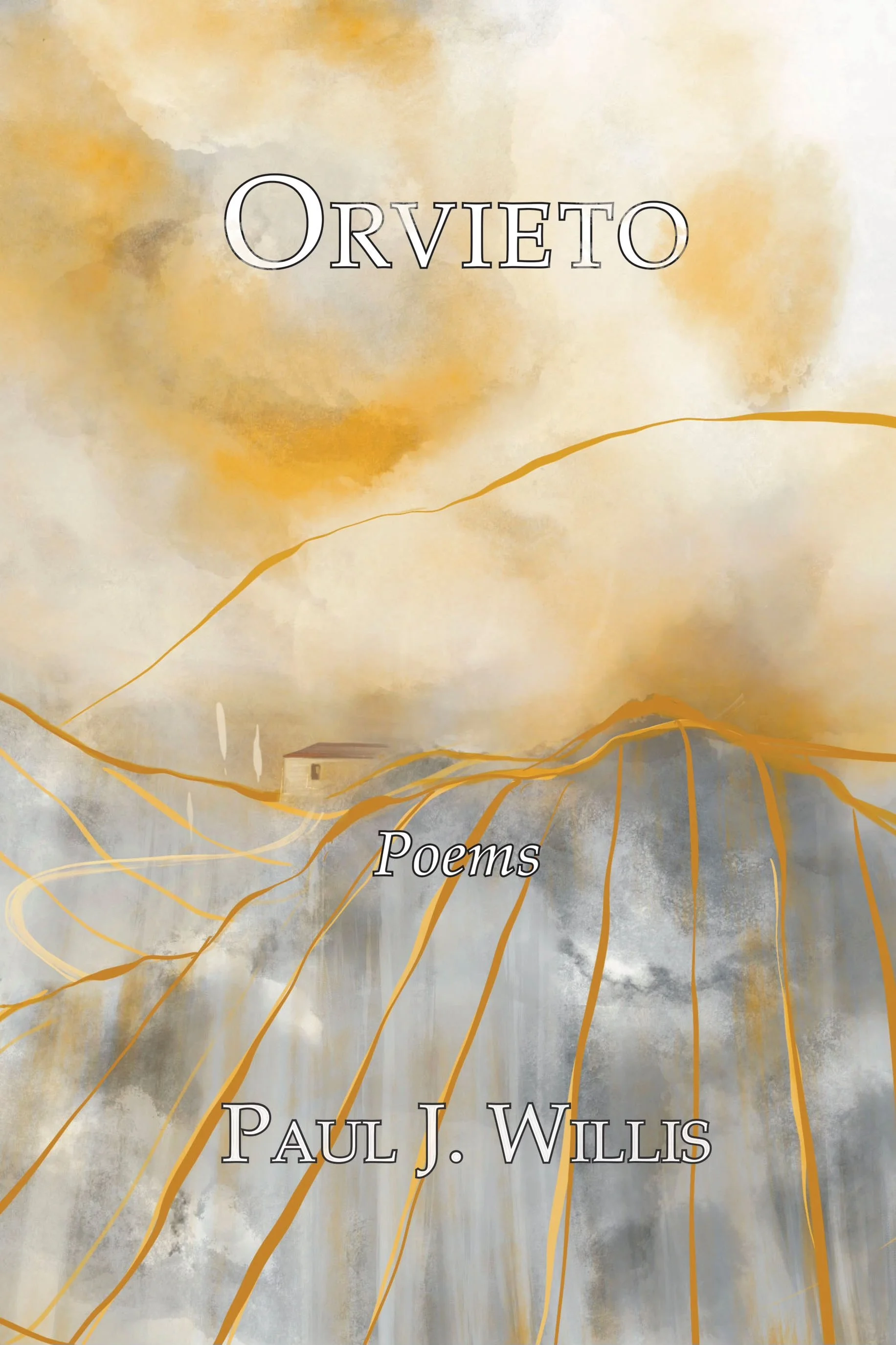orvieto
by paul j. willis
What happens when an American poet most at home in Yosemite is summoned to teach in the faraway land of Italy? In the tradition of Mark Twain’s Innocents Abroad, Paul J. Willis comes to terms with the Umbrian town of Orvieto in a suite of poems that are sure to land in your memory and imagination. By means of research, experience, observation, and, perhaps, more than a small dose of naivete, he fills his verse with the strangeness and wonder of Etruscan, Roman, medieval, Renaissance, and contemporary times that layer this resilient city. An interweaving of past and present, pagan and Christian, and art and nature creates a rich tapestry for any eager visitor to place or poem. Come and see.
praise for orvieto
In Orvieto, Paul Willis’s entreaty to be made “more than a tourist, at least for a day” has, happily for the reader, been granted. Whether it’s the “spoked halo as big and strong / as a steering wheel on a UPS delivery truck” or the play of light on distant fields that the poet and his companion “didn’t know was a picture until we saw it," the observations in these dexterous, intimate poems startle me awake. They take me to Italy and, at the same time, more deeply into the “bones and blossoms” of my own life.
—CATHERINE ABBEY HODGES, author of Empty Me Full
Those of us who have read and admired Paul Willis’s poetry for many years tend to think of him as a writer most at home in the natural world. What a surprise, therefore, to see he is equally skilled at bringing to life the Italian town of Orvieto, its houses of worship, and its spectacular works of art. And yet, while they have been transported to Umbria, Willis’s new poems retain the qualities of his earlier work: an unmatched eye for detail, gentle humor, soaring spirituality, and a fierce kindness that embraces the living and the dead, the sinning and those sinned against.
—DAVID STARKEY, author of You, Caravaggio
Paul Willis takes the reader on an intimate tour through vineyards and city streets, churches and tombs, and bridges that bear the memory of bombardiers—a memory that is alien to “orange and ochre butterflies.” Far stronger than the pain of history is the mercy of “vineyards harvested of many grapes” and of “teal-gray streams,” their current inviting us to a new year. And how could we not go, into and through this inspired and inspiring travelogue!
—SOFIA M. STARNES, author of The Consequence of Moonlight
Orvieto is not another poetic travelogue. Rather, it is a lyric and candid translation of the experience of place as it connects to history in general as well as personal history. It engages the political and the personal with humor, irony, and a keen poetic appreciation of the everyday, and the concentrated images and narrative transform specifics into the larger themes of our lives.
—CHRISTOPHER BUCKLEY, author of Sprezzatura
about the author
Paul J. Willis has published eight full collections of poetry, the most recent of which are Somewhere to Follow and Losing Streak. He is an emeritus professor of English at Westmont College and a former poet laureate of Santa Barbara, California, where he lives with his wife, Sharon, near the old mission. Learn more at www.pauljwillis.com.


